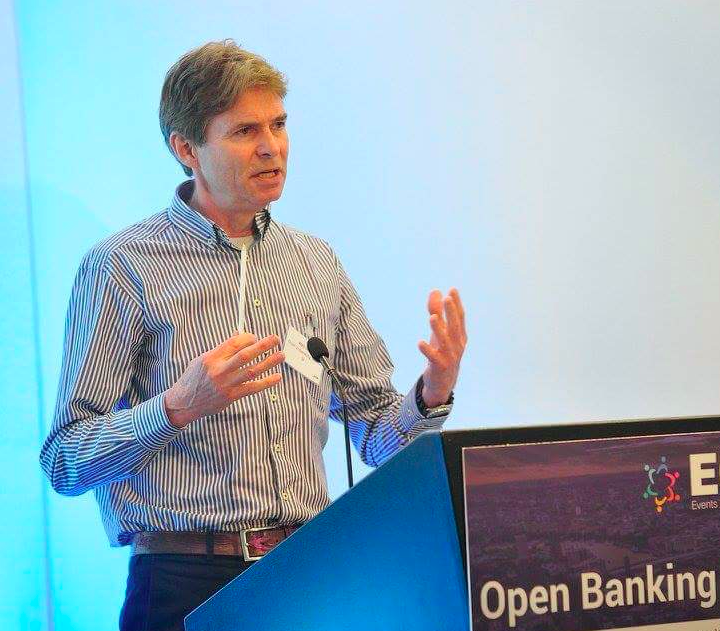
A happy new world is dawning for all consumers who use financial products .
It is called The Intelligent Financial Future, or 'TIFF'. However, there is so much underlying complexity involved that the jargon may well confuse most people who enter as early adopters. But fear not: if you don't know your APIs from your PSD2, let alone your open banking from your open data, then you are in good company – perhaps along with 99.99% of consumers.
Here's the short explanation: TIFF is all about getting a better deal for your financial wellbeing by liberating your banking data from the icy grip of the banks.
Your banking data is the holy grail of your financial life. Today the banks guard that data jealously and sell you what products they can, based on their understanding of your spending and income. That is coming to an end in January 2018, through a combination of technology, regulation and data standards.
Under the new rules, you can allow your banking data to be accessed by your chosen providers to offer you other services and products. So, for example, you might let a cool app provider help you plan your finances. Or you may keep an HSBC account for commodity payments and processing services, but use a different and cleverer interface from another provider to allow you to manage your financial health better. Inevitably, all this terrifies the banks.
Or you may choose to allow a comparison site to let you know the best current account deals based on your actual financial usage. This is even more scary for banks charging relentlessly for services that they suggest are free.
TIFF is happening because of a perfect storm of nifty technology (application programming interfaces), the big regulatory stick (revised payment service directive and open banking), and complex agreements over data standards (open data).
A. Technology: how TIFF is glued together
An API is technology which allows one handset or machine to get information from another and communicate back and forth, regardless of operating system. Fintech is largely dependent on these lovely little gizmos. Don't bother with the 'how?' Most people don't care how their smartphone mysteriously connects to another operating system's handset and equally most of us certainly wouldn't understand the answer. It's called great progress. OK? That is quite enough on technology.
B. Regulation: why TIFF will happen
PSD2 is the Article 116 wish list that was served up by the EU to try to achieve quite a few goals, including:
1. clobbering Visa and MasterCard for charging shops and other merchants for payments at the point of sale
2. clobbering the banks (by consigning them to an even bleaker future by making them share the data they hold about your transactions, so that other providers can proposition you in an informed way).
Open banking is the UK's kid brother of PSD2. Like PSD2, it wants to liberate your data from the banks, but open banking is a more specific and focused banking subset all of our very own.
C. Standards: how TIFF is enabled
All this now requires every single bank and payments company to design, agree and implement a massive new set of standards (security, technical and data). This is called open data, where the language, content and security are all established in a single universal lexicon. This means that 'machine A' can ask 'machine B' a question that it understands, and gets an answer back that it too can understand, automatically. This has to happen in the machines in every bank and in every participating app or service provider right across the UK.
So there will be tears along the way, and consumers should not expect a robo-advised journey to a truly personalised financial nirvana to be either simple or occur soon. But whether the banks like it or not, The Intelligent Financial Future is certain to happen and January 2018 is when it starts.
-
Temenos partners with ClearBank for cloud payments
Banking software company Temenos has formed a strategic relationship with ClearBank to provide banks with a faster route to market for real-time cloud payments...
-
Unity Trust Bank registers 34% rise in profits
Unity Trust Bank increased profits by 34% in 2019...
-
Believe the hype – why explainable AI is a trend that’s here to stay
Technology has become a ubiquitous part of our day-to-day lives...
-
Piloting tech updates: ‘The bigger the bank, the harder it is to get anything done’
In the latest Medianett filmed roundtable session, we discussed how important technology is in the banking space, and what impact the industry expects it to have on its businesses in the future...
-
What banks need to know about cloud security
One of the most common perceived concerns when adopting the cloud is the issue of security...
-
OakNorth sees 95% increase in pre-tax profits
OakNorth Bank has announced a 95% rise in pre-tax profits in 2019 to £65.9m, up from the £33.9m recorded in 2018...
-
Redwood Bank signs up to Women in Finance Charter
Redwood Bank has announced that it has signed up to the Women in Finance (WIF) Charter...
-
Masthaven launches digital Women in Leadership programme
Masthaven Bank has launched a new Women in Leadership digital development programme for female senior leaders...
-
Protecting against supply chain disruption and the domino effect
Disappointingly, many UK SME business owners don’t understand their supply chains...
-
Confused about which Isa to choose? Hopefully this mini-guide will help…
We are now firmly in Isa season, so you’re likely to read multiple articles about the most competitive Isa products in the market and how best to make the most of your Isa allowance before the end of the tax year...
-
Garden shed entrepreneurs contribute £16.6bn to the UK economy
Entrepreneurs who run their businesses from garden sheds contribute £16.6bn annually to the UK economy, according to a recent study...



